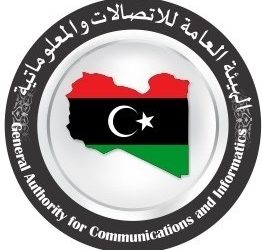The Chairman of the Libyan Post Telecommunications and Information Company (LPTIC), Libya’s telecommunications holding company that controls all state telecoms sector, Mohamed Ben Ayad, signed an agreement to connect Italy with Libya through a submarine cable. The agreement is part of LPTIC’s 2025 vision to make Libya a major digital gateway in the world.
Commenting to Libya Herald on the agreement, the Director of LPTIC’s Media Office, Osama Al-Shaibani, said, “The signing comes as part of the visit of the government delegation headed by the head of the Government of National Unity, Abd Alhamid Aldabaiba, to the Italian capital, Rome, and within the framework of the conclusion of a number of development and partnership agreements between the two countries.”
Al-Shaibani said that LPTIC is working on developing the communications infrastructure locally and internationally, in cooperation with major international companies, which contribute to increasing the quality and speed of services provided by its subsidiaries.
The Tripoli-Mazara cable
He said that Libya and Italy are connected to the Tripoli-Mazara cable, which is 570 km long and is owned by the Libyan International Telecom Company, a subsidiary of the LPTIC with the Italian Telecom Company Sparkle (TIS). This cable connects Libya to the European continent via Sicily / Italy with a capacity of 340 Gb / s.
The Silphium cable
It is worth noting that Libya is also connected to the European continent through the international submarine cable Silphium, which is the first international submarine cable 100 percent owned by Libya and connects the eastern region to the world. It was launched in June 2012 with a length of 425 km and an initial capacity of 70 gigabits per second up to 1.2 Tbps. These capacities are currently being upgraded to 370 Gbps.
The Silphium cable connects the city of Derna to the city of Chania on the island of Crete in Greece. The international submarine cable Silphium was unique when it was established as the longest submarine cable in the world with the technology of not using signal re-strengthening equipment.








